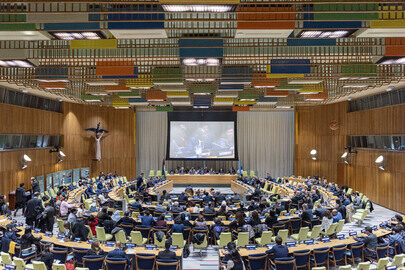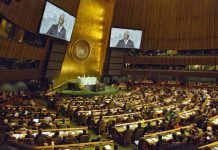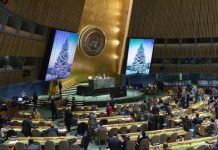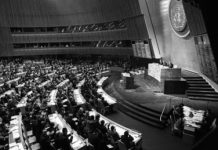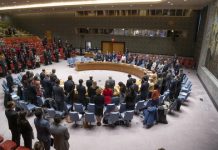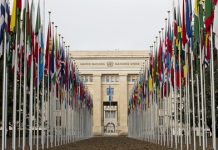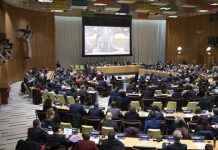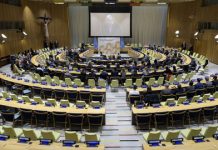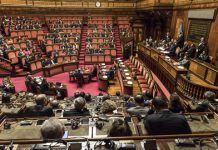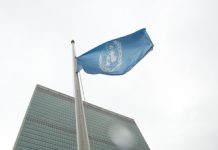Ukraine and Croatia secured seats from the Eastern European regional group, which had three available seats.
Russia and Belarus, having failed to obtain the required two-thirds majority, have proceeded to a second round of restricted balloting. North Macedonia, the fifth candidate from the group, did not meet the two-thirds threshold and did not advance.
Germany and the United States were also elected in a by-election to replace Liechtenstein and Italy, who relinquished their seats. Their terms will run through 2026 and 2027, respectively.
Other countries elected to ECOSOC – for three year terms – include Australia, Burundi, Chad, China, Ecuador, Finland, India, Lebanon, Mozambique, Norway, Peru, Sierra Leone, Saint Kitts and Nevis, Türkiye, and Turkmenistan.
The terms of all new members will begin on 1 January 2026.
Geographic representation
ECOSOC membership is allocated based on equitable geographical representation across five regional groups: African States, Asia-Pacific States, Eastern European States, Latin American and Caribbean States, and Western European and other States.
ECOSOC is one of the six main organs of the United Nations and consists of 54 Member States elected for overlapping three-year terms. It plays a central role in advancing the international development agenda and fostering international cooperation across economic, social, and environmental spheres.
The General Assembly, comprising all 193 UN Member States, elects ECOSOC members annually by secret ballot.
Source of original article: United Nations (news.un.org). Photo credit: UN. The content of this article does not necessarily reflect the views or opinion of Global Diaspora News (www.globaldiasporanews.com).
To submit your press release: (https://www.globaldiasporanews.com/pr).
To advertise on Global Diaspora News: (www.globaldiasporanews.com/ads).
Sign up to Global Diaspora News newsletter (https://www.globaldiasporanews.com/newsletter/) to start receiving updates and opportunities directly in your email inbox for free.


